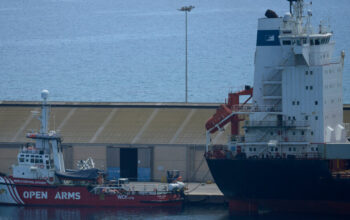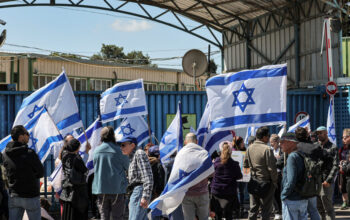
The F.S.B. said that after carrying out the attack, the accused woman, traveling with her young daughter, had crossed the border into Estonia, which has been highly critical of Russia. Prominent Russian ultranationalists suggested that Estonia was sheltering an assassin and that the Kremlin should take forceful action against its much smaller neighbor, a NATO member, which would risk widening the conflict.
On Tuesday, Estonia’s foreign minister, Urmas Reinsalu, said in an interview on Estonian television, “We regard this as one instance of provocation in a very long line of provocations by the Russian Federation, and we have nothing more to say about it at the moment.”
Hundreds of people, including lawmakers, writers and cultural leaders, attended a televised memorial service for Ms. Dugina on Tuesday in Moscow, marked by calls for vengeance and vows that Russia would crush Ukraine. Many of them, like her, are ultranationalists who have called for Russia to reassert itself as a great power in opposition to the West and liberalism, and to reclaim former territories of the U.S.S.R. and the Russian Empire, particularly Ukraine.
Ms. Dugina’s father, Aleksandr Dugin, is among the most influential of that group. President Vladimir V. Putin — who awarded Ms. Dugina Russia’s Order of Courage posthumously — has embraced their ideology, but many of them want him to be more aggressive, and to put Russia on a full-fledged war footing.
“Her death could only be justified by the highest achievement — by victory,” Mr. Dugin said at the memorial, bursting into tears. “She lived in the name of victory and died in its name, in the name of our Russian victory.”
Reporting was contributed by Farnaz Fassihi, Marc Santora and Ivan Nechepurenko.


